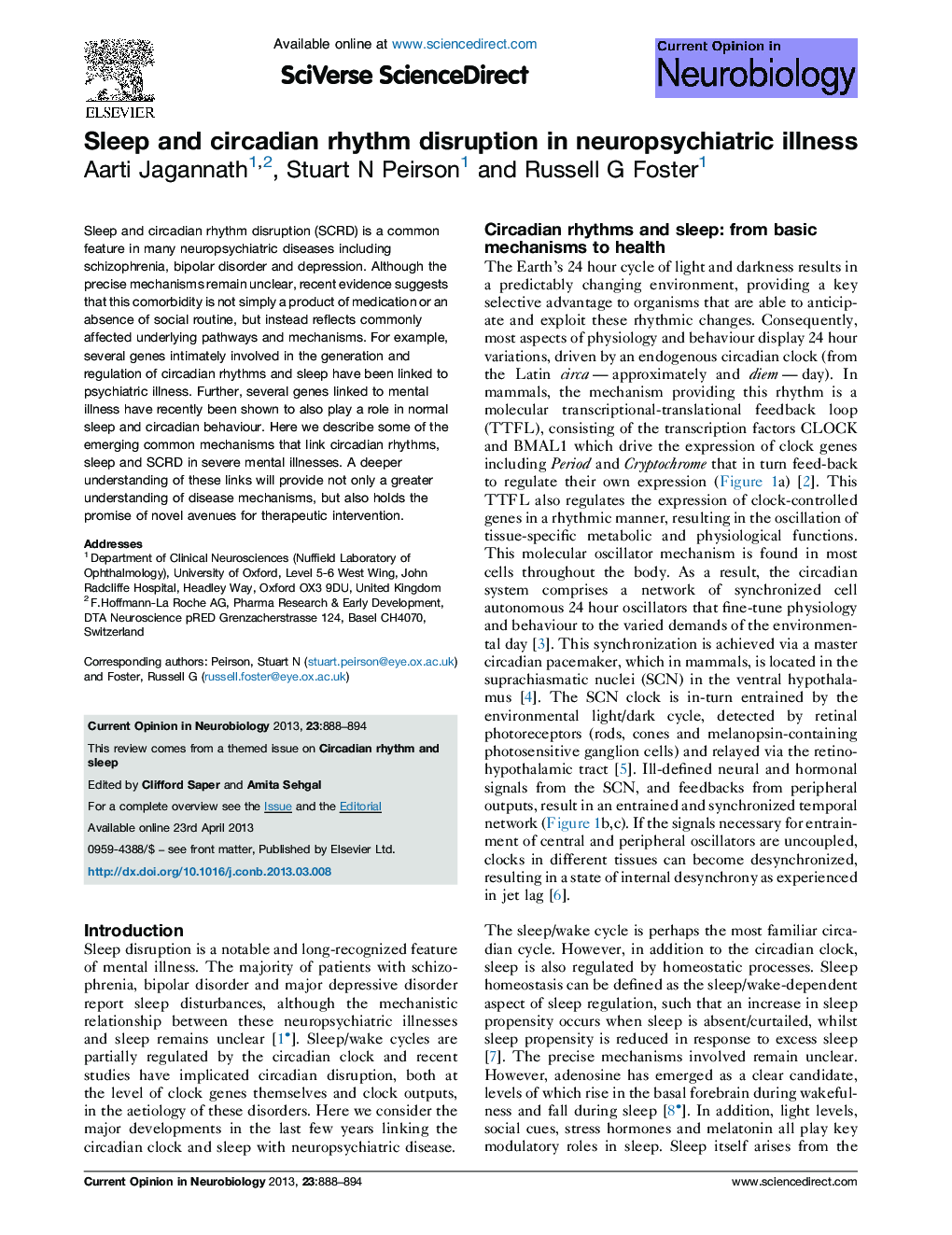| Article ID | Journal | Published Year | Pages | File Type |
|---|---|---|---|---|
| 6266638 | Current Opinion in Neurobiology | 2013 | 7 Pages |
â¢Sleep and circadian rhythm disruption (SCRD) is a common comorbidity in psychiatric disorders.â¢Common mechanisms may underlie SCRD and psychiatric disease development.â¢Clock genes have been implicated in the pathophysiology of several diseases including bipolar disorder, schizophrenia and depression.â¢Stabilization of sleep and circadian behaviours is providing new approaches for the treatment of psychiatric illnesses.
Sleep and circadian rhythm disruption (SCRD) is a common feature in many neuropsychiatric diseases including schizophrenia, bipolar disorder and depression. Although the precise mechanisms remain unclear, recent evidence suggests that this comorbidity is not simply a product of medication or an absence of social routine, but instead reflects commonly affected underlying pathways and mechanisms. For example, several genes intimately involved in the generation and regulation of circadian rhythms and sleep have been linked to psychiatric illness. Further, several genes linked to mental illness have recently been shown to also play a role in normal sleep and circadian behaviour. Here we describe some of the emerging common mechanisms that link circadian rhythms, sleep and SCRD in severe mental illnesses. A deeper understanding of these links will provide not only a greater understanding of disease mechanisms, but also holds the promise of novel avenues for therapeutic intervention.
